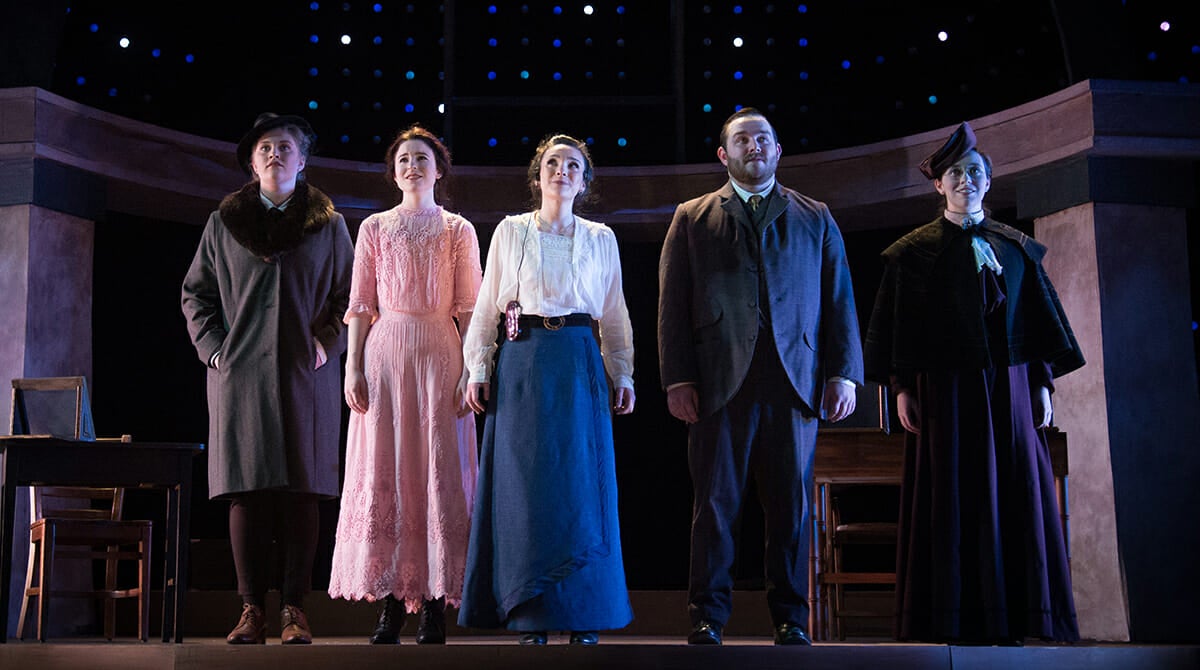Exercise Science Faculty Research
Check out the studies that our exercise science faculty are conducting.
Dr. Jessica Cellucci '12
This study explored the effects of an 8-week peer coaching program on physical activity (PA), diet, sleep, social isolation, and mental health among college students in the United States. A total of 52 college students were recruited and randomized to the coaching (n = 28) or the control group (n = 24). The coaching group met with a trained peer health coach once a week for 8 weeks focusing on self-selected wellness domains. Coaching techniques included reflective listening, motivational interviews, and goal setting. The control group received a wellness handbook. PA, self-efficacy for eating healthy foods, quality of sleep, social isolation, positive affect and well-being, anxiety, and cognitive function were measured.
No interaction effects between time and group were significant for the overall intervention group (all p > 0.05), while the main effects of group difference on moderate PA and total PA were significant (p < 0.05). Goal-specific analysis showed that, compared to the control group, those who had a PA goal significantly increased vigorous PA Metabolic Equivalent of Task (METs) (p < 0.05). The vigorous METs for the PA goal group increased from 1013.33 (SD = 1055.12) to 1578.67 (SD = 1354.09); the control group decreased from 1012.94 (SD = 1322.943) to 682.11 (SD = 754.89); having a stress goal significantly predicted a higher post-coaching positive affect and well-being, controlling the pre-score and other demographic factors: B = 0.37 and p < 0.05. Peer coaching showed a promising effect on improving PA and positive affect and well-being among college students.
Authors: Zi Yan, Jessica Cellucci, Julia F.W. Cohen, Laura Kurdziel, Sarah Benes, Seungbin Oh, April Bowling.
Research has demonstrated associations between differing modalities of physical activity (PA) and behavioral and learning outcomes; however, little evidence exists in real world settings. To evaluate the effects of embedding high intensity interval training (HITT) and resistance training (RT) into physical education (PE) curriculum on PA, academic performance, and behavior in youth attending urban schools. Forty boys and 30 girls; ages 8-10 yrs. enrolled in an expanded public school supplemental learning program were assigned into one of three conditions using a pragmatic trial design: standard PE curriculum (n = 23), HITT (n = 25), and RT (n = 22). PA was measured using accelerometers; math achievement scores were conducted at baseline and post-intervention using the Math Knowledge Assessment (MKA); behavior was assessed using the Abbreviated Conners Rating Scale (ACRS) daily.
Participation in HITT resulted in 1.86 additional vigorous PA minutes (p=0.04) and 0.76 additional very vigorous PA minutes (P=0.02) per session, but was not associated with increased moderate PA minutes compared to the control group. RT PA outcomes did not differ from regular PE. Participating in HIIT, but not RT, was associated with a 1.82-point improvement in math test scores compared to those in the same grade in the standard PE group (p=0.02). No group assignment was associated with behavioral ratings. Embedding HITT within PE has potential for improving vigorous PA levels and may affect learning outcomes in urban youth. This is consistent with prior studies which show how short bouts of intense exercise can improve cognitive outcomes.
Authors: Jessica Peacock, Kevin Finn, April Bowling.

